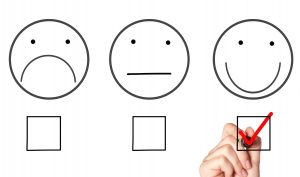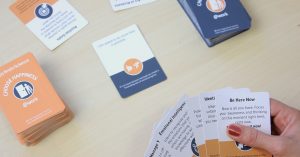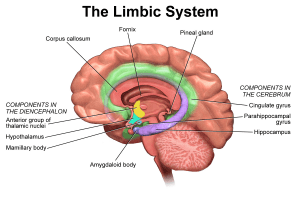Are you stressed out by changes at work? 5 proven strategies to help you succeed.
Changes at Work Cause Stress — 5 Strategies for Success


Are you stressed out by changes at work? 5 proven strategies to help you succeed.

At Happy Brain Science, we try to “walk our talk” as much as possible, doing our best to apply all the science we teach and activities we recommend. If we forget, our awesome Director of Operations and Speaker Ayla Lewis reminds us; it’s part of why I love working with her so much! Like any read more…

Researchers have found that writing about your goals–and successfully reaching them–can help you to gain insight into your priorities and emotions, increase feelings of control, improve performance, and boost happiness. Read this article to learn how to visualize your best possible future.

I believe you can play your way to a happy, thriving team, which results in boosted performance, creativity, resilience, success, and even pay. Read this article to find out how.

Mastery–feeling competent, and feeling your ability improve–is one of the most important human motivators, according to research. Read this article to find out how you can boost your Mastery at work.

Please think of the last time you were pleasantly surprised. What happened in your brain? Science suggests your brain released more dopamine and your brain’s reward centers became more active because you didn’t expect what happened. What does this have to do with ‘gamification’ and leadership?

(Note: This is part 3 in a series on Gamification: Embedding elements of game playing to the workplace to encourage engagement . If you missed the first two posts, read Part 1: Part 1 Autonomy and Part 2 Relatedness) “Arrrrgh…OK just one more time!” If you’ve ever muttered something like this playing a video game–as I read more…

Do you dread going to work because of a difficult coworker? Are you frustrated by a lack of understanding and communication at work? Research has found that our brains are wired to get along with each other. In fact, relatedness is one of our primary social needs—and when we don’t feel connected with our colleagues we tend to be more stressed out and less engaged at work. To increase compassion in your workplace, apply the following Happy Brain Science research-based suggestions

Courage is the ability to do something that frightens us, and science tells us that how we face fears has a substantial effect on our well-being. Stress and fear are often found together, and when we get scared or stressed our amygdala can largely take over our brains, deciding between fight, flight or freeze, which isn’t always best for brain function. In the workplace, facing your fears may not only boost your brain, but can also improve relationships, productivity and happiness. How can you overcome the negative effects of fear while boosting your brain at work?

Let go and forgive. These words are so easy to say, but for some of us–including me–these actions can be hard to do. In fact when someone does something to us that we perceive as inappropriate or unfair, many of us become vengeful. That’s natural, and to be clear, unpleasant emotions such as anger can be read more…